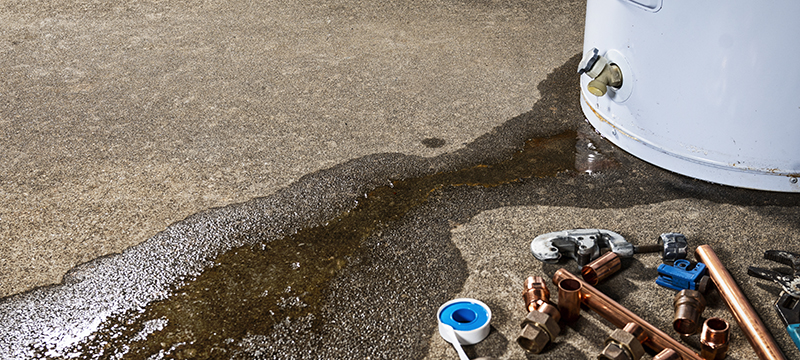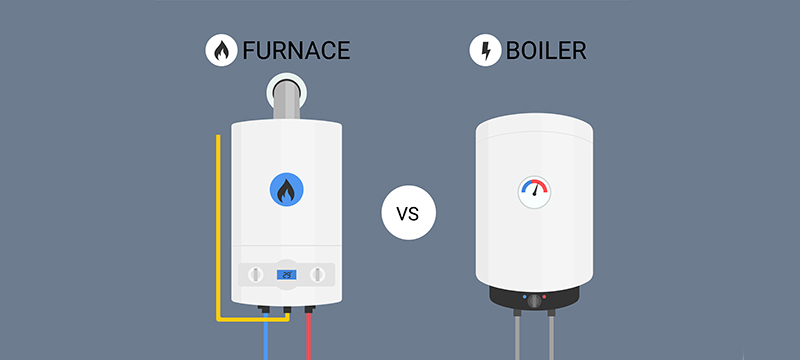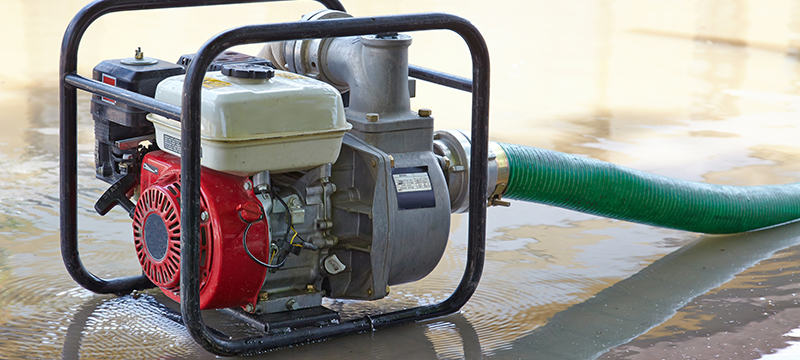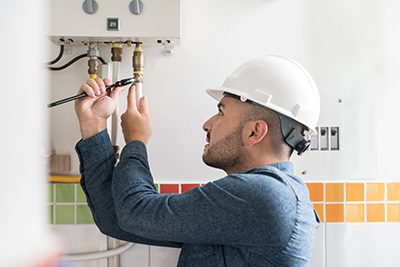
You may come home to see water pooling around the base of your water heater, it’s not heating water or many other problems. These are signs it’s likely time to either repair or replace your water heater. Depending on the time of the issue will help determine if you need to repair or replace the unit. If the water heater is closer to the end of its lifespan, replacement is probably the better option.
Now, answering the question of how long do water heaters last isn’t as cut and dry as you would think. There are a handful of things that can dictate your water heater lifespan. The type of water heater, quality, how well it’s maintained, levels of use, and quality of water can all swing the lifespan of your water heater by a few years.
Water Heater Lifespan
Depending on the type of water heater you have will determine its lifespan. Not all units are the same, and different types of water heaters are built differently, so they may have a longer life expectancy.
How Long Do Gas Water Heaters Last?
A gas water heater has an average lifespan of 8 to 12 years before a replacement is needed.
How Long Do Electric Water Heaters Last?
An electric water heater has a slightly longer lifespan than gas water heaters, typically lasting 10 to 15 years.
How Long Do Tankless Water Heaters Last?
Tankless water heaters have the longest life expectancy of all three types at more than 20 years. Many parts can easily be replaced based on the heater’s design, elongating the water heater’s lifespan.
Tip for Finding Water Heater Age
If you recently moved into an older home, you may not have documentation on the water heater to find how old it is. Luckily, there is a trick to finding the age of the water heater, the serial number. The number usually begins with a letter that corresponds to the month; an “A” means January, “B” for February, and so on. The next two numbers in the serial correspond to the year the water heater was manufactured. So, a serial number that begins with “F14” would have been manufactured in June of 2014. You can confirm on the water heater brand’s website to ensure they use this system.
When Should You Replace a Water Heater?
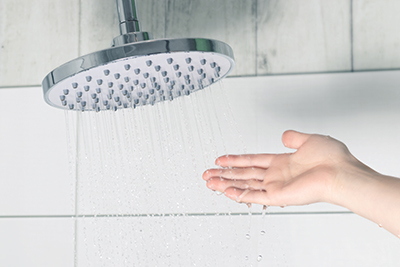
Monitoring the performance of your water heater is pivotal to preventing a problem before it happens. A few things are usually good indicators your water heater is reaching its end of life, and it may be time for a replacement. Keep in mind these are issues that matter more as you are reaching the later stages of the water heater’s lifespan, and some of them may be reparable issues versus an entire replacement of the unit.
Lack of Hot Water
A lack of hot water is the biggest and most obvious sign your water heater is close to failing. Whether the water temperature doesn’t stay hot for as long, reaches a lesser maximum temperature, or less overall hot water is available, having less hot water could be a sign of sediment build-up in the tank. Naturally, the more sediment build-up in the tank, the less space available for hot water.
Water is Tinted or Strangely Colored
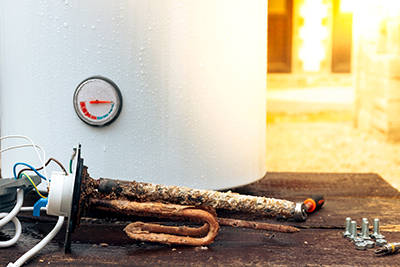
You may have noticed brownish-red or yellow water coming from your faucets. that either means you have rust in your pipes or it’s a water heater issue. Run the cold water, and if you still see the discoloration of the water, it may be an issue with your pipes, but if it disappears, it’s likely a water heater problem.
The Water Heater Makes Gurgling or Popping Sounds
You might hear loud gurgling or popping sounds coming from the water heater. This is a result of calcium build-up caused by hard water that settles at the bottom of the tank and hardens into a thick crust. The sounds you’re hearing are from the crust heating up while the unit is in use. If that sediment is left for too long, it could lead to heating elements in the unit failing.
The Equipment is Old
This one is pretty straightforward. The older your water heater, the more likely it needs to be replaced. Even if there aren’t currently any problems with the water heater, there will be shortly.
The Unit Leaks or Creates Water Puddles
Water outside of the water heater is a red alert stage. It could be a simple leak, but it could be a much larger problem. Check fittings and valves to see if the leak is coming from them and can be fixed by tightening them or replaced. Regardless it’s probably a good idea to call a professional at this stage.
How Can You Expand a Water Heater’s Lifespan?
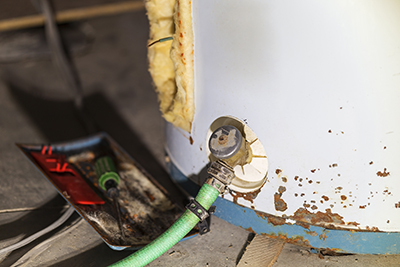
A gas water heater’s 8 to 12-year lifespan is just an average and doesn’t apply to every heater. Although you can’t undo the damage from over the years, there are steps you can take to elongate the life of your appliance. Via consistent inspection and maintenance, you can add a few years to the life of your water heater. Some of these items can be done by yourself, but others should be left to a trained professional to ensure the work is done safely and properly.
Check the Pressure-Relief Valve
A water heater’s pressure relief valve is a safety feature that prevents a problem if the water pressure becomes too high. Without the valve, the unit could burst, causing injury. The pressure relief valve is usually found on the side of the water heater at the top of the overflow drainpipe. You can test the valve is working properly by lifting the handle and letting it snap back into place. A small amount of water should release out of the bottom of the drainpipe. If no water comes out, the valve needs to be replaced.
Drain Sediments From the Water Heater Tank
Sediments can build up in the bottom of the tank over time, reducing the water heater’s efficiency and leading to clogged pipes. These problems can be prevented by flushing the tank at least twice a year.
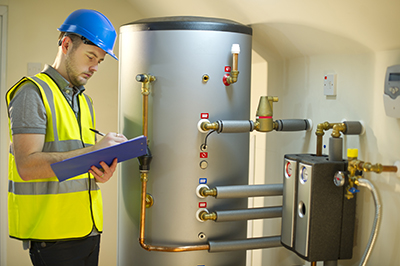
Schedule Regular Professional Maintenance
Checking the pressure relief valve and draining the water tank can be done relatively easily by yourself with a few tools, but if you aren’t comfortable doing them yourself, we recommend calling a professional. Regular professional maintenance is a good idea regardless to ensure your heater stays in as perfect working condition as possible. A professional will also check the anode rod during routine maintenance, which protects the water heater from rust. The rod dissolves over time, and a trained professional can easily replace it when needed.
Conclusion
A water heater isn’t something you always think about until there is a problem. Periodically checking the items listed above will help avoid larger issues down the line. The life expectancy of a water heater is something that’s partially up to you, and by performing the checkups listed, you may be able to lengthen the life of the unit a little bit longer. As you approach the average lifespan of the water heater, you should begin preparing to replace your old unit. Replacing the water heater before it dies will save you a lot of money and stress.
More on Water Heaters
For more information on water heaters check out our buying guide on gas versus electric water heaters.

